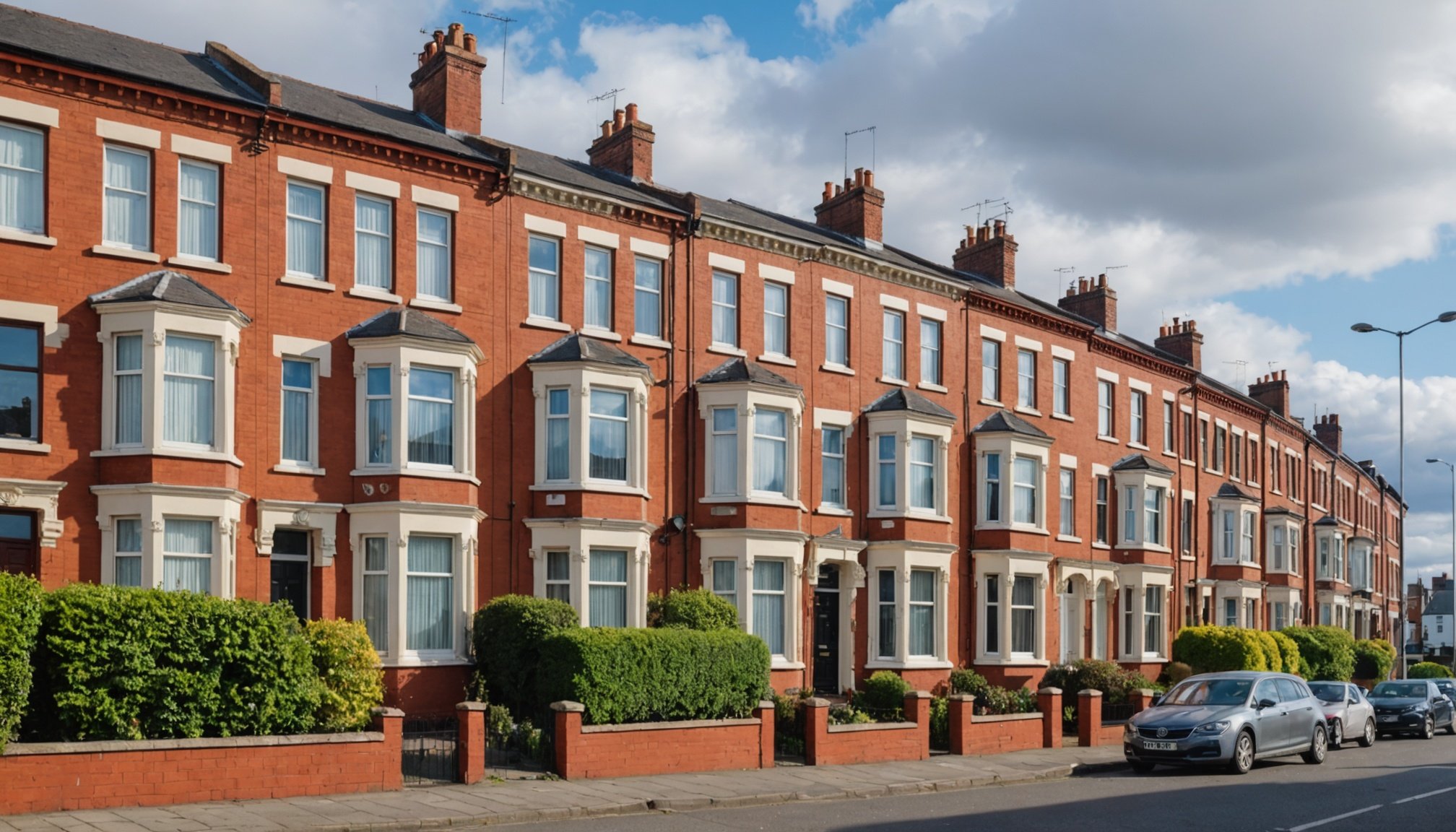Essential Guide for First-Time Landlords in Northern Ireland: Mastering the Rental Market
Understanding the Basics of Being a Landlord in Northern Ireland
If you’re considering becoming a landlord in Northern Ireland, it’s crucial to understand the basics of the rental market and the legal requirements that come with it. Here are some key points to get you started:
Registering as a Landlord
Before you can let out a property, you must register under the Landlord Registration Scheme in Northern Ireland. This scheme requires you to provide accurate information about any rental properties you own and costs £70, which must be renewed every three years.
Have you seen this : Unlocking Opportunities: How UK Property Investors Can Benefit from the Rising Trend of Green Buildings
Legal Requirements
As a landlord, you have several legal obligations to fulfill. These include ensuring the property is fit for human habitation, arranging annual gas safety checks, and conducting five-yearly electrical safety checks. You must also provide tenants with essential documents such as a gas safety certificate, deposit paperwork, and an Energy Performance Certificate.
Financing Your Buy-to-Let Property
Financing a buy-to-let property in Northern Ireland can be slightly more challenging than in other parts of the UK, but it is still very feasible.
Additional reading : Maximizing Retirement Income: A Guide for UK Retirees on Strategic Property Investment Planning
Buy-to-Let Mortgages
To secure a buy-to-let mortgage, you typically need a deposit of around 25% of the property’s value. However, properties in rural areas or those with non-standard construction may require a larger deposit and higher interest rates due to the perceived higher risk.
Working with a Mortgage Broker
It is highly recommended to work with an experienced buy-to-let mortgage broker who has knowledge of the Northern Irish market. They can help you understand your chances of approval, provide local insights, and gather the necessary documentary evidence to ensure a smooth application process.
Finding the Right Property
Choosing the right property is critical for success as a landlord.
Location and Market Demand
Consider the location carefully, taking into account factors such as proximity to workplaces, schools, public transport links, and social amenities. Areas with high demand for rental properties will generally offer better rental yields.
Property Type
Decide whether you want to invest in a house, apartment, or other types of properties. Each has its own set of advantages and challenges. For example, houses might offer more space but could require more maintenance, while apartments might be easier to manage but could have higher service charges.
Managing Your Rental Property
Once you’ve acquired your property, managing it effectively is key to maintaining good relationships with your tenants and ensuring a smooth rental experience.
Letting Agents
Using a letting agent can be very beneficial. They can advertise your property, arrange viewings, and help negotiate tenancy agreements. Letting agents in Northern Ireland must be part of an approved redress scheme, which can mediate in disputes between landlords and tenants.
Tenancy Agreements
A tenancy agreement is a contract between you and your tenant, outlining both parties’ rights and responsibilities. The most common type is an assured-shorthold tenancy agreement (AST), which is usually set for a fixed term of six months to two years. Make sure to include all necessary clauses, such as rent payments, deposit details, and maintenance responsibilities.
Financial Considerations
As a landlord, you need to be aware of several financial aspects of renting out a property.
Rental Income and Expenses
Your rental income will be subject to tax, and you can deduct certain expenses such as mortgage interest, maintenance costs, and agent fees. However, tax changes can affect your net income, so it’s important to stay updated on tax regulations.
Deposit Protection
You must protect your tenant’s deposit in a government-approved scheme. This ensures that the deposit is safe and can be returned to the tenant at the end of the tenancy, provided there are no deductions for damages or cleaning.
Landlord Insurance
Investing in landlord insurance is crucial to protect your property and financial interests. This insurance can cover risks such as property damage, rent arrears, and legal disputes.
Dealing with Tenants
Building a good relationship with your tenants is vital for a successful tenancy.
Right to Rent Checks
In Northern Ireland, you do not need to conduct Right to Rent checks, unlike in England. However, you still need to ensure that your tenants are reliable and can afford the rent. Credit checks and references from previous landlords can be helpful.
Maintenance and Repairs
As a landlord, you are responsible for maintaining the property and ensuring it remains safe and habitable. This includes arranging annual gas safety checks and five-yearly electrical safety checks. Tenants are generally responsible for the general upkeep of the property, such as changing light bulbs and unblocking sinks.
Ending a Tenancy
When a tenancy comes to an end, there are several steps you need to follow.
Notice Periods
Landlords must provide proper notice if they wish for the tenant to vacate the property. Typically, this is at least two months’ notice after the fixed term has expired. Tenants usually need to give one month’s notice.
Return of Deposit
Ensure that the property is inspected at the end of the tenancy to determine if any deductions will be made from the deposit. Tenants should be present during this inspection to avoid any disputes. Any deductions should be justified and agreed upon by both parties.
Additional Tips and Considerations
Here are some additional tips to help you navigate the rental market in Northern Ireland:
Affordable Housing
Consider the need for affordable housing in your area. Offering competitive rental rates can attract reliable tenants and contribute to the local housing need.
Housing Benefit
Some tenants may be receiving housing benefit. Understanding how this works and ensuring you comply with the relevant regulations can help you manage these tenancies effectively.
Market Trends
Keep an eye on house prices and rental rates in your area. This will help you set competitive rents and make informed decisions about your investment.
Practical Checklist for First-Time Landlords
Here is a detailed checklist to help you get started:
-
Register with the Landlord Registration Scheme
-
Obtain a certificate for £70, renewable every three years.
-
Secure a Buy-to-Let Mortgage
-
Work with a mortgage broker to find the best rates and terms.
-
Choose the Right Property
-
Consider location, market demand, and property type.
-
Use a Letting Agent
-
Ensure they are part of an approved redress scheme.
-
Draft a Comprehensive Tenancy Agreement
-
Include all necessary clauses and ensure it is signed by both parties.
-
Protect the Tenant’s Deposit
-
Use a government-approved deposit protection scheme.
-
Obtain Necessary Documents
-
Gas safety certificate, deposit paperwork, Energy Performance Certificate, and electrical inspection records.
-
Maintain the Property
-
Ensure annual gas safety checks and five-yearly electrical safety checks are conducted.
-
Communicate with Tenants
-
Build a good relationship and ensure clear communication regarding maintenance and repairs.
Table: Key Documents and Checks for Landlords
| Document/Check | Description | Frequency |
|---|---|---|
| Gas Safety Certificate | Ensures gas installations are safe | Annually |
| Electrical Safety Check | Ensures electrical installations are safe | Every 5 years |
| Energy Performance Certificate | Provides energy efficiency rating of the property | At the start of tenancy |
| Deposit Paperwork | Ensures the tenant’s deposit is protected in a government-approved scheme | At the start of tenancy |
| Inventory (Check-in Report) | Records the condition of the property at the start of tenancy | At the start of tenancy |
| Right to Rent Checks | Not required in Northern Ireland, but credit checks are recommended | Before tenancy |
| Landlord Registration Certificate | Required for all landlords in Northern Ireland | Every 3 years |
Quotes and Insights from Experts
-
“As a landlord, it’s crucial to understand your legal obligations and ensure you comply with all regulations. This not only protects you but also your tenants,” says a spokesperson from the Landlord Registration Scheme.
-
“Working with a mortgage broker can significantly simplify the process of securing a buy-to-let mortgage. They have the expertise and local knowledge to guide you through the application process,” advises an experienced mortgage broker.
-
“Maintaining a good relationship with your tenants is key to a successful tenancy. Clear communication and prompt action on maintenance issues can go a long way in building trust,” notes a seasoned landlord.
Becoming a successful landlord in Northern Ireland requires a thorough understanding of the rental market, legal requirements, and financial considerations. By following this guide, you can navigate the complexities of letting a property and ensure a positive experience for both you and your tenants.
Remember, staying informed about market trends, tax changes, and legal requirements is essential for long-term success. Whether you’re investing in a new home or managing an existing property, making sure you comply with all regulations and best practices will help you thrive in the rental market.

